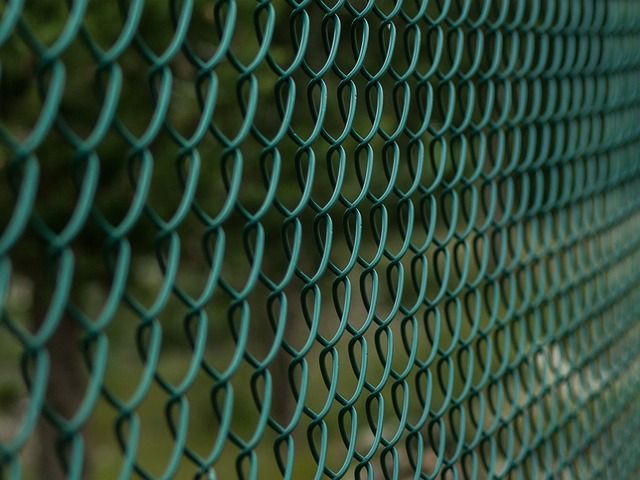In New Bedford, MA, homeowners and urban planners are increasingly turning to eco-friendly fencing materials, driven by a desire to harmonize outdoor spaces with the surrounding environment. This trend is not merely aesthetic; it offers substantial benefits, from mitigating pollution and promoting biodiversity to reducing maintenance costs over time. This article explores various eco-fencing options available in New Bedford, delving into their environmental advantages, longevity, and cost savings, while highlighting natural alternatives for defining yard boundaries sustainably.
- Eco-Friendly Fencing Options in New Bedford
- Benefits of Sustainable Fence Materials
- Natural Alternatives for Yard Boundaries
- How Eco-Fencing Improves Local Ecosystems
- Longevity and Cost Savings with Green Fences
Eco-Friendly Fencing Options in New Bedford
New Bedford, MA, residents now have an array of eco-friendly fencing options to choose from, contributing to a greener cityscape. Natural materials like wood from sustainably managed forests and bamboo offer both aesthetic appeal and environmental benefits. These options are durable and can last for years with proper maintenance, reducing the need for frequent replacements.
Local suppliers also provide recycled plastic fences, which are highly durable and resistant to rot and pests. These products are made from post-consumer waste, minimizing landfill contributions and conserving resources. Additionally, some innovative manufacturers produce fencing from compostable bioplastics, ensuring that these materials can break down naturally over time, further reducing environmental impact.
Benefits of Sustainable Fence Materials
In New Bedford, MA, the adoption of eco-friendly fencing materials offers a multitude of benefits for both homeowners and the local environment. These sustainable alternatives not only enhance the aesthetic appeal of properties but also contribute to a greener, healthier community. One significant advantage is their reduced environmental impact; unlike traditional fences made from petroleum-based products, eco-friendly options are crafted from renewable resources like bamboo, recycled plastic, or organic compounds, minimizing carbon footprints and preserving natural resources.
Additionally, these sustainable materials often possess superior durability and longevity. For instance, bamboo fencing is known for its strength and resistance to rot, while recycled plastic can withstand harsh weather conditions without fading or cracking. This longevity translates to reduced waste and cost savings over time, making eco-friendly fencing a practical and financially prudent choice for New Bedford residents looking to enhance their outdoor spaces responsibly.
Natural Alternatives for Yard Boundaries
In New Bedford, MA, homeowners are increasingly seeking natural alternatives for yard boundaries, moving away from traditional materials that can harm the environment. Eco-friendly fencing options, such as wooden posts and natural ropes or wires, offer a sustainable solution while enhancing the aesthetic appeal of outdoor spaces. These options not only reduce environmental impact but also blend seamlessly with the surrounding landscape, creating a harmonious look that complements the local ecosystem.
Natural materials like bamboo, hemp, and recycled plastic provide excellent alternatives to conventional fencing. Bamboo, known for its rapid growth and strength, can be woven or strung to create durable fences that are both visually appealing and eco-conscious. Hemp and recycled plastic offer additional benefits, such as insulation properties and reduced production emissions, making them popular choices among environmentally conscious homeowners in New Bedford.
How Eco-Fencing Improves Local Ecosystems
Eco-friendly fencing materials are making a significant impact on local ecosystems in New Bedford, MA. Unlike traditional fences that can contribute to environmental degradation, these sustainable alternatives offer numerous benefits for the natural world. For instance, many eco-fencing options are made from recycled or renewable resources, reducing the demand for new materials and minimizing waste. This, in turn, helps preserve valuable natural resources and reduces carbon footprints associated with manufacturing.
Moreover, certain types of eco-fencing provide habitats and food sources for local wildlife. Plant-based fences, such as those constructed from bamboo or hedgerows, can support diverse plant and animal life, fostering biodiversity within the landscape. Additionally, these materials often require less maintenance, reducing the use of chemical fertilizers and pesticides that can pollute nearby water bodies and harm beneficial insects and birds. By adopting eco-friendly fencing in New Bedford, residents contribute to a healthier, more balanced ecosystem for both current and future generations.
Longevity and Cost Savings with Green Fences
Eco-friendly fencing materials, such as recycled plastic, bamboo, or organic fibers, offer an impressive advantage in terms of longevity. These materials are designed to withstand various weather conditions and are resistant to rot, decay, and insect damage, ensuring your fence remains robust for many years. Unlike traditional wooden fences that may require frequent repairs or replacements, green fences can last up to two decades or more with minimal maintenance.
Cost savings is another significant benefit. While the initial investment in eco-friendly fencing might be slightly higher than conventional options, its longevity translates into reduced long-term costs. You’ll save money on repairs, painting (in the case of wooden fences), and replacement, making it a financially prudent choice in New Bedford, MA, while also contributing to a greener environment.
